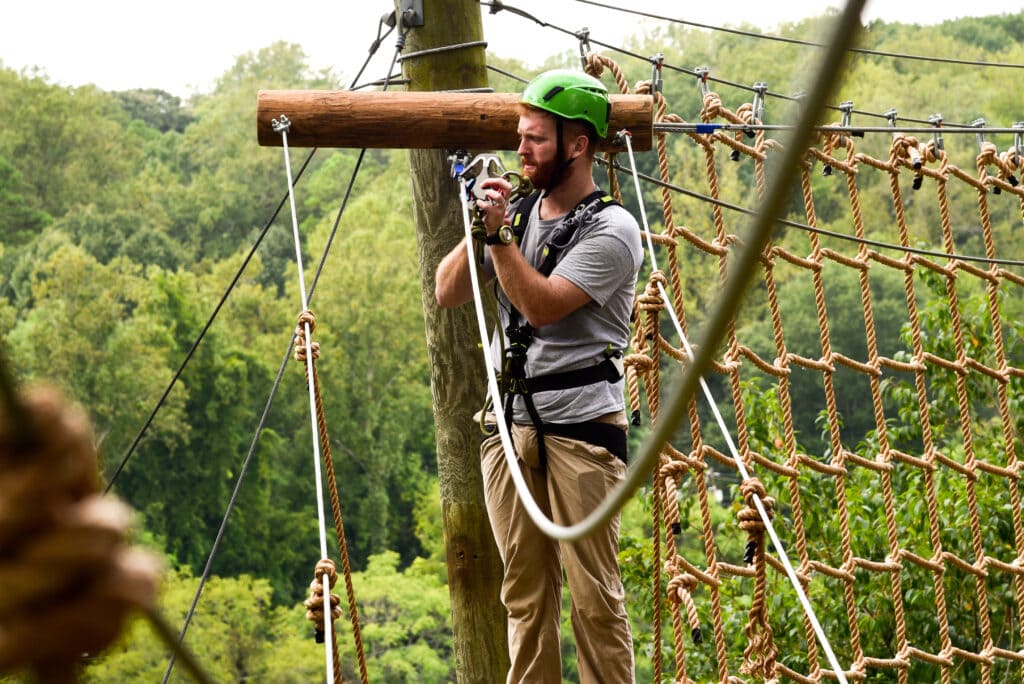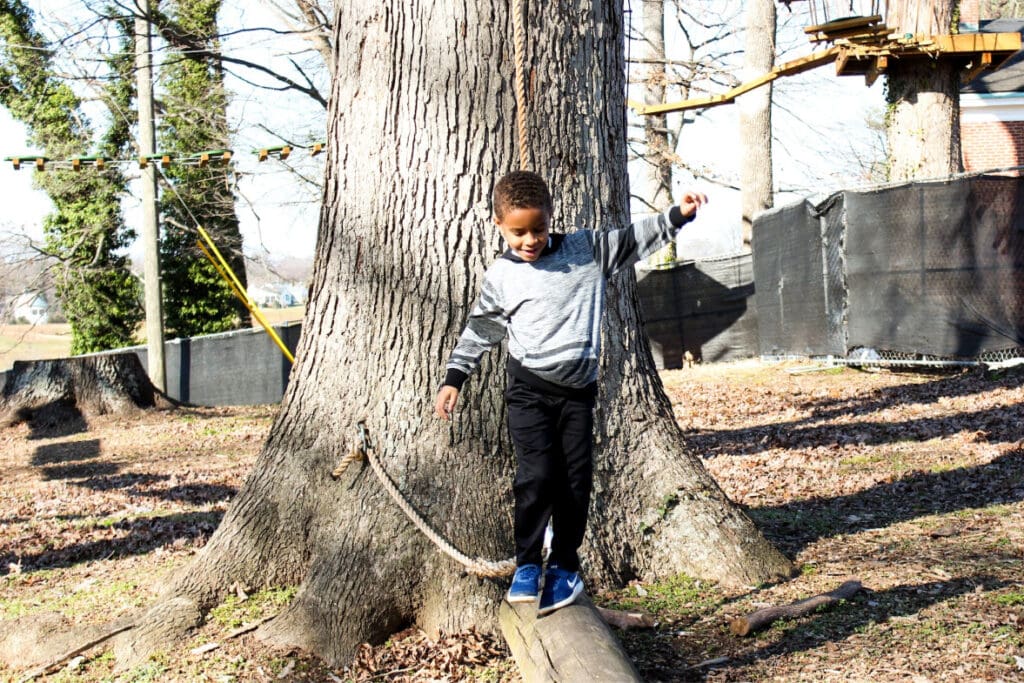Interview with Andrew Florence, Crossnore’s Adventure Based Counselor
What is Adventure-Based Counseling?
Adventure-based counseling is a specific method of doing group-based therapeutic interventions. Typically it includes games and physical activities and is built on the basis of having fun. It strips away the superficiality and gets to how kids relate to one another or how adult teams can relate to one another.
How does Adventure-Based Counseling fit into a trauma-informed care model?
As part of our commitment to trauma-informed care, adventure-based counseling activities help our kids recognize their similarities and identify their group belonging. This is important because group belonging, self-efficacy, and peer and adult attachments are the foundation of building resiliency for people who’ve experienced trauma.
With adults and children, it also helps us practice our commitment to shared governance. In the group process, everyone is important, no one is left out, and success relies on every person. Also, the fun aspect of adventure-based counseling allows us to confront difficult conversations. Utilizing open communication with difficult discussions allows us to go deeper quickly.
What tools do you use in Adventure-Based Counseling?
As a trauma-informed organization, we recognize that traumatized kids and adults hold their trauma in their bodies. This intervention helps a person connect to their bodies and their brains to feel empowered and validated in their experiences and what they are capable of.
When a child experiences trauma, they go into a state of hyperarousal. The same thing happens when you utilize a tool such as the new high ropes course on the Winston-Salem campus. The course helps each participant face the fear part of their brain and retrains them on how to face stress. It’s a tool to work on how they get through each day, how they relate to their past, and what does their future look like.
Other tools include games and activities on the farm, with therapy horses, or on the climbing wall on the Avery campus. We also hope to install a low ropes course in Winston-Salem in the future. After a session of Adventure-Based Counseling, each child participates in processing the experience with safe and caring adults and caregivers. This is an important part of the group process.
What are your hopes for Adventure-Based Counseling at Crossnore?
I would love for us to engage every program for the kids – foster care and adoptions, residential, and day treatment – at all our locations. Doing so would help us build community within and across all the programs.
How might Adventure-Based Counseling be used with staff at Crossnore?
With our adult teams, adventure-based counseling will help us to face and handle the vicarious trauma and organizational trauma inherent in the type of work that we do. We can learn to be more empathetic with one another and create a work environment that is more engaging and fun. This also creates belonging and helps staff identify their part in meeting our mission.
For more information about adventure-based counseling at Crossnore, please contact Andrew Florence, Adventure-Based Counselor, at aflorence@crossnore.org.





